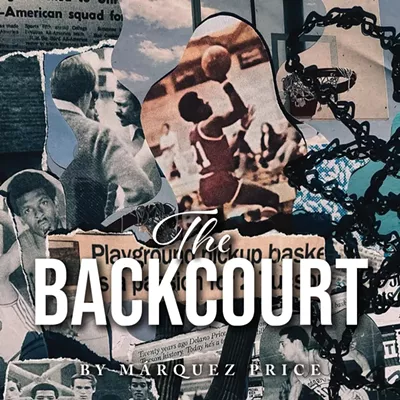When you're on the downward slope of life, the deaths keep coming at you with numbing regularity. There are the celebrities, the distant relatives and the people you knew in school.
In a cold calculus, one makes an instant judgment as to how, if at all, the deceased affected our lives. Of course, it hurts (at least a little) when it was somebody you knew, but it still hurts, albeit in a different way, when it was somebody you wanted to know, or maybe you felt you did "know" in a kindred-spirit kind of way.
In the past few weeks, two men who had a profound effect on my life passed away. The younger of the two was 95 when he left us. I don't want to hear about how "he led a full life." Like Richard Pryor said, "Maybe he wanted to be 96."
Martin Gardner was 95 when he died on May 22. Martin Gardner is a name to which most people will respond, "Who?" But then there are the fortunate few who were handed a copy of Scientific American by a science teacher sometime back in school. After trying unsuccessfully to hack my way through the articles that were written at a grad-student-base level, I came upon Martin Gardner's "Mathematical Games."
I remember that first column. There were three questions, each one clearly stated in a manner that almost said, "C'mon, you can get this!" After a considerable amount of time, and some of that hard thinking that gives me a pain behind one eye, I actually got one right—and I was hooked. (I would like to think that I would have been hooked even if I hadn't gotten one right, but I'll never know for sure.)
I would go to the school library and transcribe Gardner's columns into my notebook, being careful not to look at the answers from the previous month's questions. (Photocopying was not readily available back then.) I even talked the librarian into giving me the back issues instead of throwing them away.
Gardner was born in Tulsa, Okla., in 1914 and was kind of a nerdy kid who liked chess and magic and puzzles. He attended the University of Chicago, where he got a degree in philosophy. While in college, he did not take one math class.
Gardner's gift to my and future generations is that he popularized math rather than advancing it in any way. His puzzles and games were thought-provoking, challenging and just plain fun. Some could be solved through common sense and logic, but I liked the ones that required at least some math ability. One of my favorites:
If you happen to meet two of the Jones sisters (this assumes that the two are random selections from the set of all of the Jones sisters), it is an exactly even-money bet that both girls will be blue-eyed. What is your best guess as to the number of Jones sisters, and how many of the total have blue eyes?
A person with an understanding of probability (a subset of math that sends some people screaming into the streets) will know that the probability of any two events both occurring is the product of the probabilities of the two individual events. But how does one start with the final answer (50 percent, or even money) and work back to find the original, individual probabilities?
Math is your friend.
Martin Gardner left behind more than 70 books, although not all were about math and puzzles. For example, he once wrote a sequel to L. Frank Baum's Wizard of Oz series in which Dorothy Gale meets characters from Alice in Wonderland and (ahem) Geraldo Rivera.
A couple of weeks after Gardner's passing, John Wooden died at age 99. To anybody who grew up in Southern California in the 1960s and '70s, John Wooden was a godlike figure. His UCLA basketball teams won 10 NCAA championships, including strings of nine in 10 years and seven in a row. He was so gracious that the one time in those 10 years that he didn't win, his Bruins stepped aside so that tiny Texas Western could use its all-black starting lineup to stun the lily-white Kentucky squad coached by notorious racist Adolph Rupp.
One of my first basketball memories was of the incredibly athletic 1965 UCLA team, with nobody taller than 6 foot 5 and led by volleyball player Keith Erickson and diminutive bad-ass Gail Goodrich.
Wooden was a fiery competitor, but always a gentleman. All of his players say that he taught them far more about being a man than being a basketball player. I got to meet him a couple of times when I was a player, and he just seemed real.
Both of those men helped shape my life in ways great and small. I still coach basketball, and I've taught math, but I've never come within a country mile of living up to the standards of either one of them. But then again, they set that bar awfully high.







